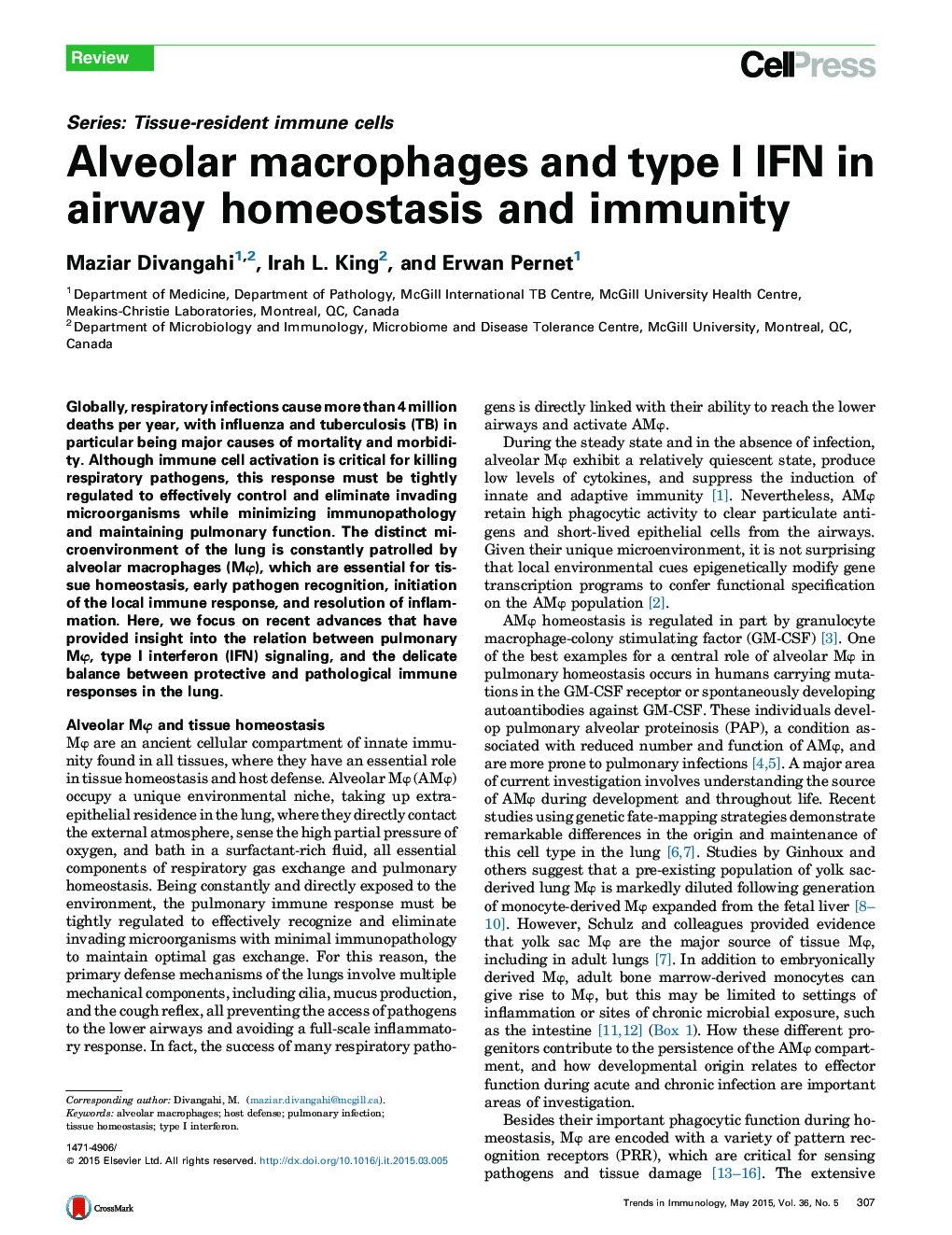| Article ID | Journal | Published Year | Pages | File Type |
|---|---|---|---|---|
| 4359764 | Trends in Immunology | 2015 | 8 Pages |
•The airways are constantly patrolled by alveolar macrophages.•Alveolar macrophages are indispensable for tissue homeostasis and host defense.•Alveolar macrophages are the major source of type I IFN following immune challenge.•Type I IFNs regulate antimicrobial and inflammatory responses of pulmonary macrophages.•Eicosanoids modulate type I IFN signaling and production following pathogen invasion.
Globally, respiratory infections cause more than 4 million deaths per year, with influenza and tuberculosis (TB) in particular being major causes of mortality and morbidity. Although immune cell activation is critical for killing respiratory pathogens, this response must be tightly regulated to effectively control and eliminate invading microorganisms while minimizing immunopathology and maintaining pulmonary function. The distinct microenvironment of the lung is constantly patrolled by alveolar macrophages (Mφ), which are essential for tissue homeostasis, early pathogen recognition, initiation of the local immune response, and resolution of inflammation. Here, we focus on recent advances that have provided insight into the relation between pulmonary Mφ, type I interferon (IFN) signaling, and the delicate balance between protective and pathological immune responses in the lung.
